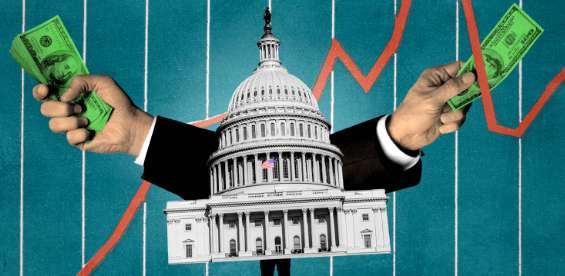'Congress Traders' Are Striking Again: This Time, They Pick The Pharmaceutical Sector
The pharmaceutical industry has underperformed the broader market in recent months, weighed down by President Donald Trumps threats of drug tariffs and disruptive safety policies spearheaded by Health

The pharmaceutical industry has underperformed the broader market in recent months, weighed down by President Donald Trump's threats of drug tariffs and disruptive safety policies spearheaded by Health Secretary Robert F. Kennedy Jr.
Trump has directed the Commerce Department to assess whether U.S. reliance on foreign drug manufacturers poses a national security risk and demanded pharmaceutical companies slash prices by up to 80%. In May, he also signed an executive order tying U.S. drug prices to the lowest rates in other wealthy nations.
Meanwhile, Kennedy has pushed to overhaul the U.S. vaccination system, rescinding guidelines recommending COVID-19 vaccines for pregnant women and healthy children. Most recently, he dismissed all 17 members of the CDC's vaccine advisory panel.
These policy shifts have pressured drugmakers, with the S&P Pharmaceuticals Select Industry Index falling more than 5% year-to-date and over 14% in the past 12 months. By contrast, the S&P 500 has gained 2% and 10% over the same periods.
However, even as pharmaceutical stocks slump, U.S. lawmakers have been actively accumulating shares. Financial disclosures reveal that House and Senate members purchased up to $2.9 million in pharma stocks during the first six months of the Trump administration, with Republicans accounting for $1.8 million of the total-outpacing Democrats.
Among the most active investors is far-right Trump ally Marjorie Taylor Greene, who executed 12 pharma stock transactions since January 20-including two purchases of Merck & Co. and one of Johnson & Johnson, each valued between $1,001 and $15,000. Greene stated these trades were managed by an external financial advisor, claiming she only learned of them through media inquiries.
Another Republican congressman, Jefferson Shreve, was also an active investor, having made 12 purchases of pharmaceutical stocks this year, including an investment of $50,000 to $100,000 in AbbVie.
According to Shreve's spokesperson, the disclosed transactions were executed by a charitable trust managed by external professionals, and Shreve has not personally traded any securities since entering Congress.
Democratic Congressman Ro Khanna, meanwhile, conducted at least 70 transactions involving pharmaceutical companies through trusts belonging to his children and spouse over the past six months, including eight purchases of Johnson & Johnson stock and four purchases each of AbbVie, Merck, and Pfizer shares. His office similarly asserted that the trades were initiated and executed by external advisors.
Under the STOCK Act enacted in 2012, U.S. lawmakers are required to disclose their stock transactions within 30 days, addressing public concerns that they might exploit congressional insider information to time their trades.
On the other hand, pharmaceutical stocks are typically considered defensive plays during periods of market volatility. Documents show that nearly one-fifth of congressional purchases of pharmaceutical company stocks occurred within one week after the announcement of reciprocal tariffs in April, while nearly 30% of the trades took place in May.
Disclaimer: The views in this article are from the original Creator and do not represent the views or position of Hawk Insight. The content of the article is for reference, communication and learning only, and does not constitute investment advice. If it involves copyright issues, please contact us for deletion.